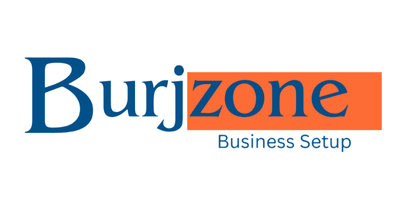Our Blog
Home / Blog
Creating an Effective Risk Management Policy for UAE Companies
In an evolving regulatory and economic environment, businesses in the UAE—whether located in Dubai Mainland, Abu Dhabi Global Market, or Sharjah Free Zones—are increasingly expected to implement formal risk management policies. For SMEs and large corporations alike, risk is no longer just about financial losses; it includes compliance failures, cyber threats, reputation damage, and operational disruptions.
This article outlines how UAE companies can develop and implement a robust risk management policy that aligns with both local laws and international standards.
1. Why Risk Management Matters More in 2025
UAE regulators have raised expectations for corporate governance and compliance, especially in the wake of:
Corporate tax enforcement
AML/CTF regulations
ESR compliance
Cybersecurity breaches
ESG and sustainability disclosures
A formal risk management policy is now not just good practice—it is a regulatory expectation in many sectors, including finance, consulting, real estate, and logistics.
2. Identify and Categorize Risks Relevant to Your Business
The first step is identifying the types of risk your UAE-based company may face. These commonly include:
Strategic Risk: Poor business decisions or market misalignment
Compliance Risk: Violations of tax, labor, or industry regulations
Operational Risk: System failures, supply chain issues, fraud
Financial Risk: Currency fluctuations, cash flow shortages, credit risk
Cybersecurity Risk: Data breaches, ransomware, IT system compromise
Reputational Risk: Negative press, public backlash, social media damage
Location matters—risks in Dubai Media City may differ significantly from those in Ajman Free Zone or RAK ICC.
3. Establish Risk Ownership and Roles
Your policy should clearly define who is responsible for identifying, reporting, and managing risks. Assign key roles:
Risk Officer or Compliance Manager
Department heads (to flag and escalate issues)
Internal audit or oversight committee
External advisors (for cybersecurity or legal risk areas)
This is especially important for companies with operations across multiple emirates such as Dubai, Sharjah, and Abu Dhabi.
4. Develop a Risk Register and Assessment Framework
Create a central Risk Register where all identified risks are documented with the following details:
Nature and description of the risk
Probability of occurrence
Potential impact (financial, operational, reputational)
Control measures in place
Assigned risk owner
Date of last and next review
Use a simple risk matrix (likelihood vs. impact) to prioritize which risks require immediate attention and which can be monitored over time.
5. Draft Your Risk Management Policy Document
Your formal policy should include:
Policy objective and scope
Definition of risk categories
Risk assessment methodology
Governance and escalation framework
Monitoring and reporting processes
Response plans (preventive, detective, corrective)
Ensure the policy is aligned with UAE-specific laws like Federal Decree Law No. 20 of 2018 (AML), UAE Cybercrime Law, and Corporate Tax Guidelines.
6. Train Staff and Build a Risk-Aware Culture
A policy is only as effective as its implementation. Train employees on how to recognize and report risks. For instance:
Sales staff should know how to detect fraud or AML red flags
IT teams must understand cybersecurity protocols
Finance teams need clarity on VAT and corporate tax risks
This is especially important in companies based in high-regulation zones such as DIFC or ADGM, where oversight is stricter.
7. Review and Update the Policy Regularly
Risk is dynamic. UAE companies must review their risk management policy at least annually—or whenever there are major changes such as:
New regulatory developments
Expansion into new markets or emirates
Changes in business model or technology stack
Regular internal audits and third-party assessments can help refine the policy.
Final Thoughts
A well-documented and actively implemented risk management policy is essential for long-term stability and credibility in the UAE business landscape. Whether you’re a startup in Dubai Silicon Oasis or an established firm in Sharjah Industrial Area, risk management is no longer optional—it’s a competitive and compliance necessity.
#RiskManagementUAE #DubaiCorporateGovernance #CompliancePolicyUAE #UAEBusinessResilience #OperationalRiskDubai #CorporateRiskFramework #UAERegulatoryCompliance #CybersecurityRiskUAE #RiskAssessmentSharjah #ADGMRiskControls
